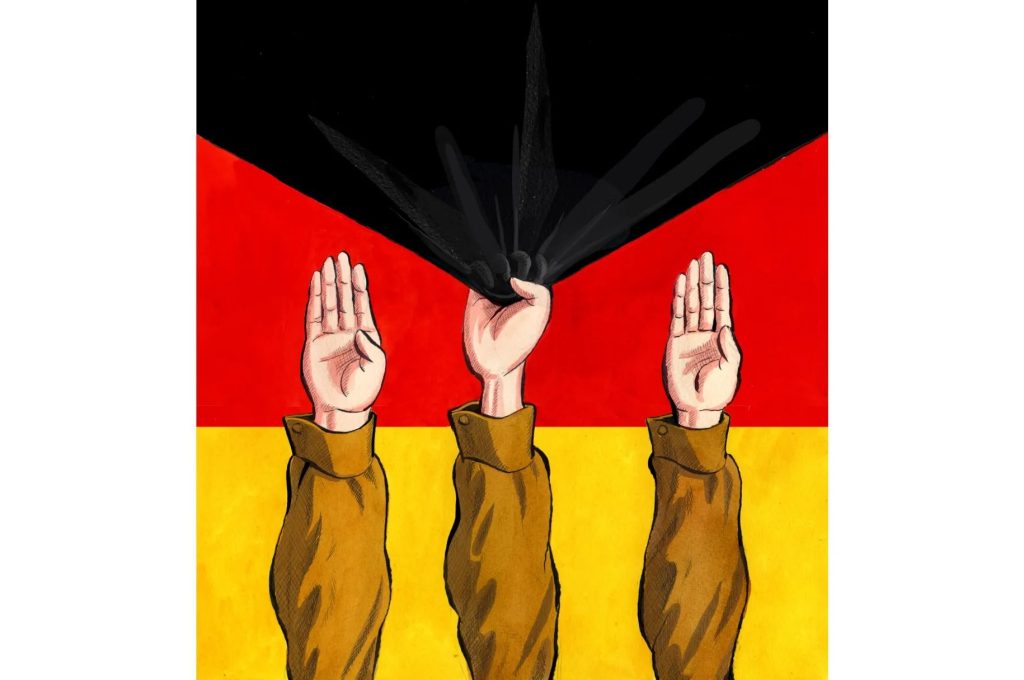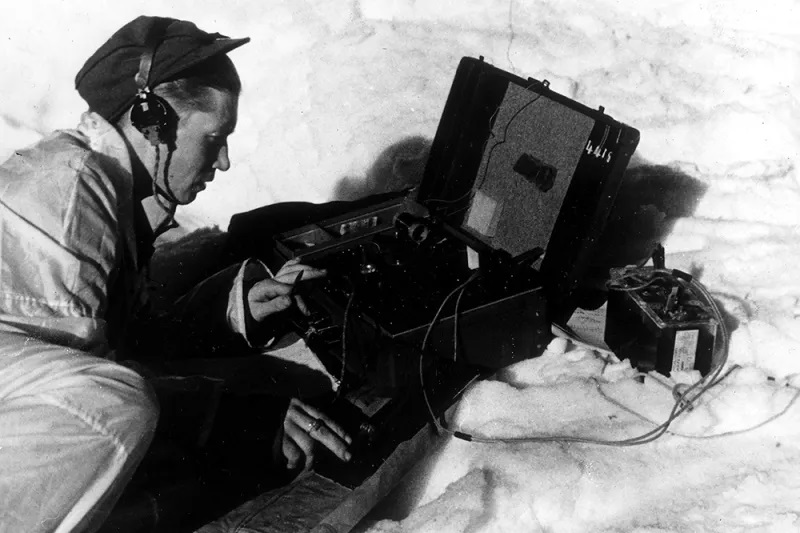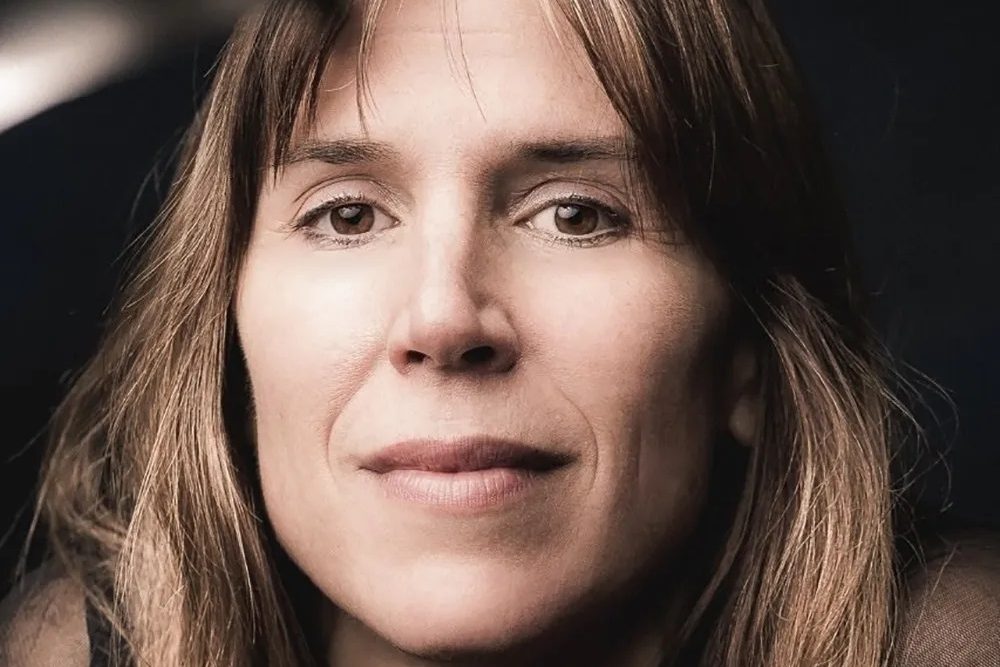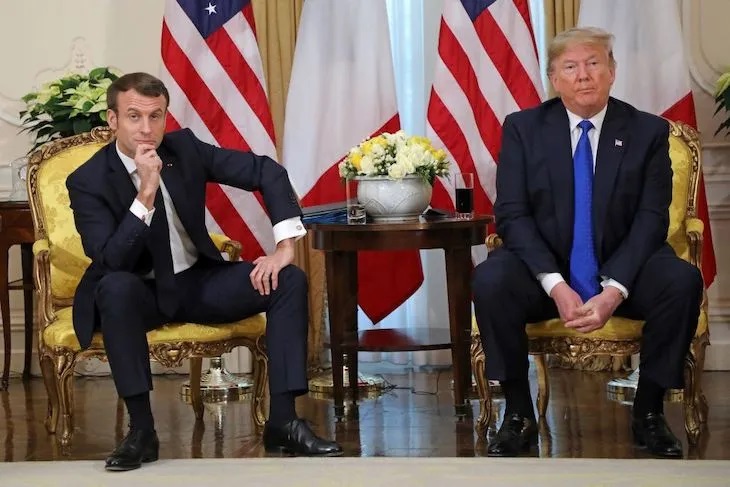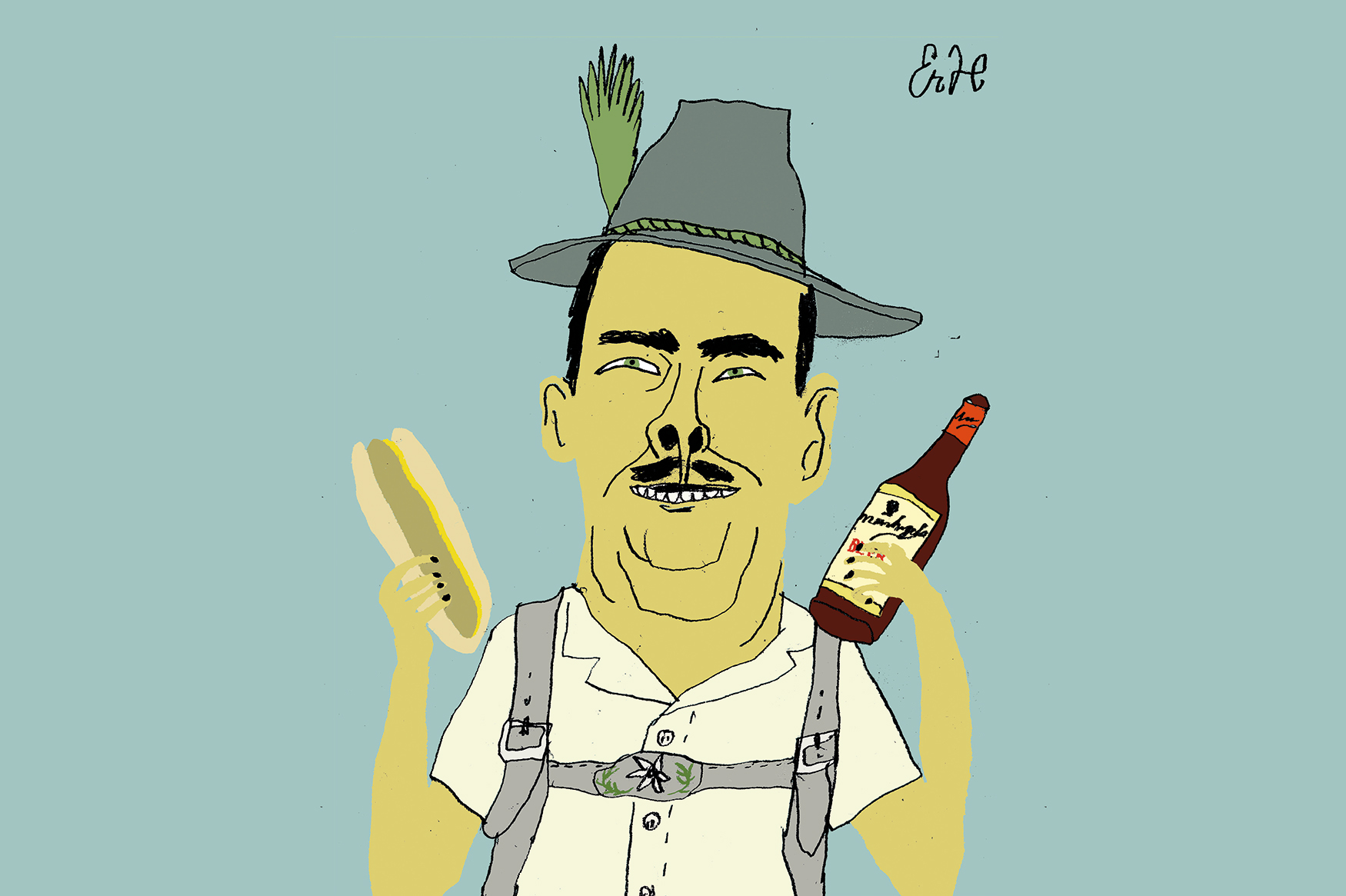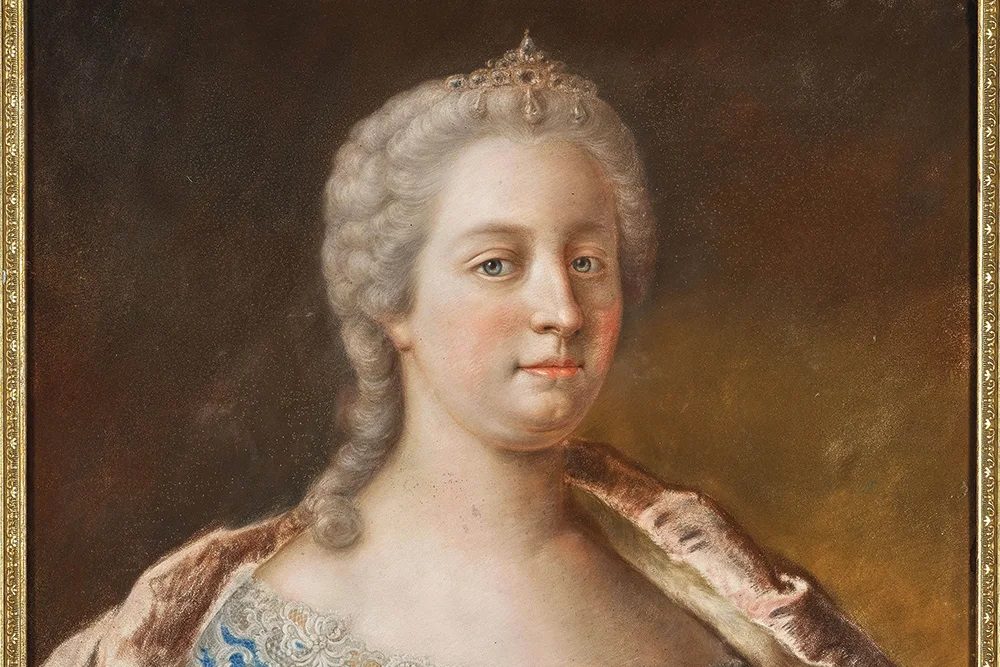“We need to deport, deport, deport!” Björn Höcke, leader of the Alternative für Deutschland in Thuringia, emphasizes each word with a clenched fist. It’s a hot Saturday evening in the small town of Arnstadt and Höcke is launching the AfD’s state election campaign. His branch of the party has been categorized as “indisputably far right” not just by the press but by German domestic intelligence. Nonetheless, it’s leading in the polls ahead of three East German state elections, two of which take place on Sunday. Höcke could well end up “Minister President” of Thuringia.
Germany is struggling not just with economic difficulties but with a surge in crime that many link to the 3 million refugees who have arrived since Angela Merkel’s “We can do this!” wave of migration in 2015. These elements collided last week in the town of Solingen, where three people were stabbed to death at a festival. Police dogs traced the suspect to a refugee hostel. A Syrian asylum seeker who dodged deportation has claimed responsibility. The Islamic State says he acted under its orders.
The atrocity has shaken Germany more than any event since the terror attack in Berlin’s Breitscheidplatz eight years ago. There was a similar attack in May, when a policeman was stabbed to death by an Afghan who arrived in Germany as a fourteen-year-old a decade ago. Olaf Scholz, the German chancellor, is discovering the legal obstacles to deportation. He is also about to discover the electoral penalty paid for failure. He’s expected to lose next year’s federal election and his party, the Social Democrats, may struggle to qualify for the 5 percent threshold in Saxony and Thuringia.
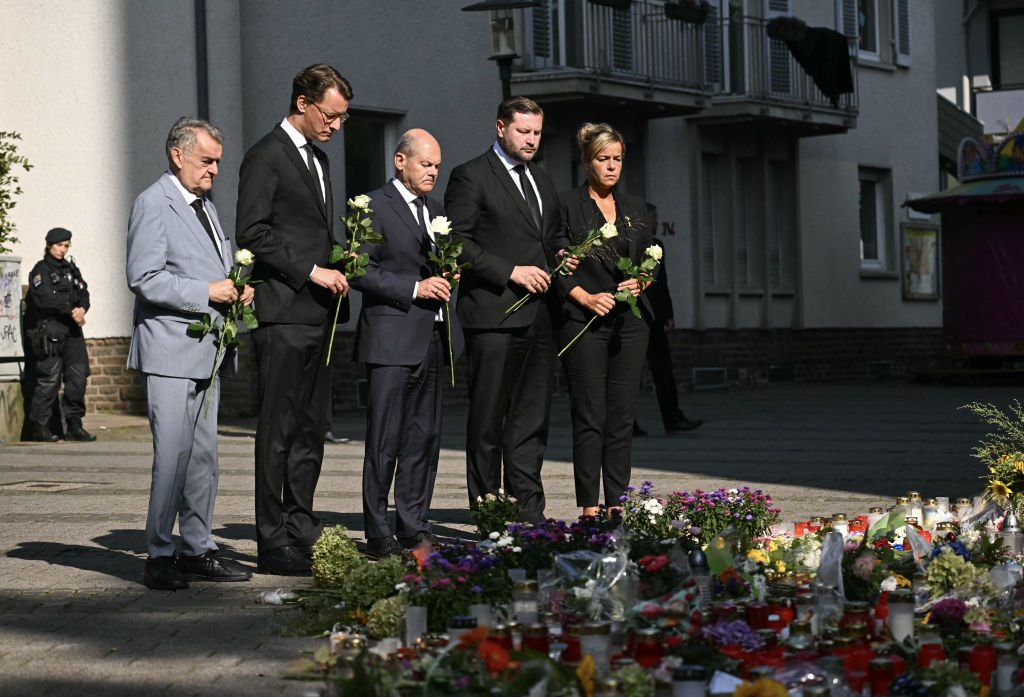
In all three eastern states, the AfD is now the strongest political force, with a 25 to 30 percent vote share. The narrative it is presenting to voters is clear: that the Solingen attack is just the latest proof that a war is on against Germans and that it’s time to fight back. Social media has been ablaze with the hashtag #HöckeOderSolingen: “either Höcke, or Solingen.” His “deport, deport” politics, runs the argument, is the only way of preventing more Islamist attacks. Scholz says immigration levels are falling, but the AfD says it’s too late.
If Germany’s economy were booming, with immigrants settling into a strong jobs market, things might be different. But Scholz’s three-party coalition is presiding over an economy that is shrinking with no recovery in sight. Germany has been slow to adapt to the digital world, with its overreliance on old analogue industries. This has left deep-seated problems. Germany has become the growth laggard of Europe, and the size of its workforce is expected to decline faster than in any other major economy.
Höcke lost little time before declaring immigration to be the ‘mother of all crises’ for Germany
On top of this, violent crime is escalating. In Berlin alone, burglaries are up by a third in a year. Serious bodily harm is at an all-time high and police say that 40 percent of all crime suspects are foreign nationals. Police are calling for extra tools to handle a new wave of knife crime from a new type of criminal. There is plenty to point to for those arguing that Germany’s economic and political models are broken.
Höcke senses his moment. “Germans! Thuringians! Do you really want to get used to these conditions?” he asked after the Solingen attack. “Free yourselves. Finally put an end to the misguided path of forced multiculturalism! Protect your children!” On Monday night, men dressed in black marched through Solingen, shouting “Foreigners out!” as they passed Turkish and Arab cafés. One protester was removed by police for making a Hitler salute. There are counterprotests and appeals for calm, but the conditions seem ripe for a populist breakthrough.
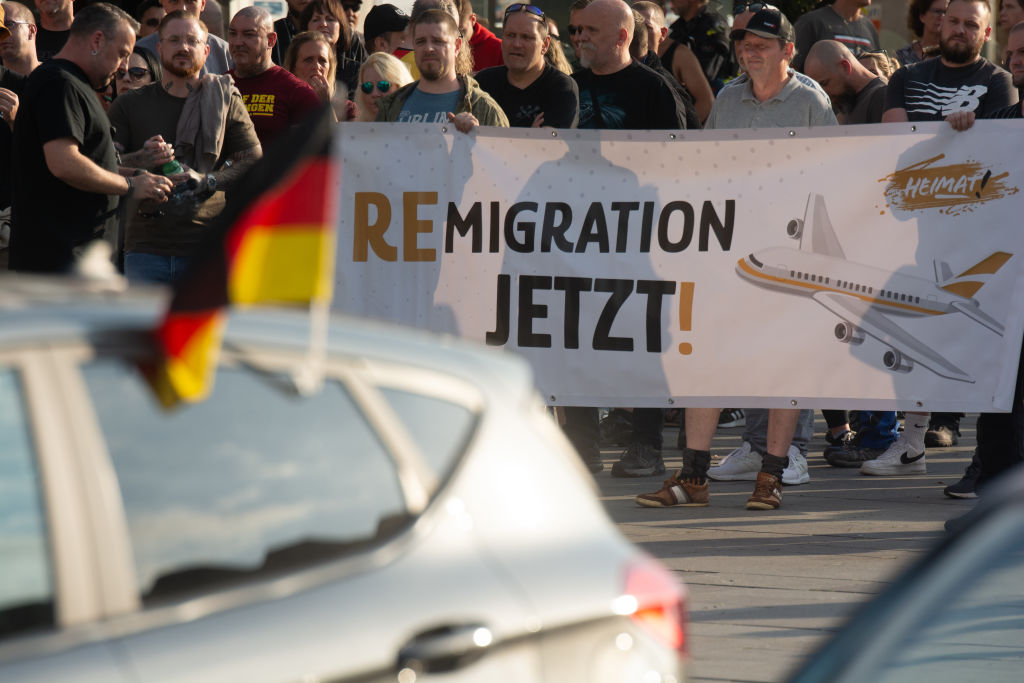
Arnstadt, where Höcke launched his campaign, is no crime hotspot. It’s one of the oldest towns in the state, peppered with baroque buildings that have changed little since J.S. Bach was a church organist there 300 years ago. The setting underlines Höcke’s point that it’s time to defend Germany’s traditions and its people from the “multicultural” onslaught.
Kicking off the campaign was Hans-Christoph Berndt, AfD candidate for Brandenberg. “We are the only party in Germany that is, without ifs or buts, committed to Germany and the German people.” It’s pretty clear, in the context, that his definition excludes those who have arrived more recently.
I joined several hundred Thuringians from across the state who came to see Höcke, squeezing themselves on to plastic chairs in an airless hall. They were in a jovial mood, in part thanks to the free pints of beer that were being handed out at the back of the room. Höcke looks an unlikely demagogue: a slight man with coiffed salt-and-pepper hair and deep-set blue eyes. He speaks with a rhythmic staccato: clipped consonants and clear vowels that betray his west German upbringing far from Thuringia. Even during the most passionate points of his speech, he does not let emotion get the better of him.
He was introduced as “the man who is going to make history.” He used to teach history at secondary school and certainly doesn’t mind evoking German’s past in his speeches. Most German politicians would do anything they could to avoid any connotations with Nazism, but Höcke seems to relish coming close to overstepping the line which to this day outlaws the old slogans — and sometimes actually doing so.
Höcke’s courting of controversy by referencing Germany’s Nazi past gives cause for concern
Take, for example, the phrase “Alles für Deutschland” — “Everything for Germany.” It’s an old Nazi motto that is still illegal to repeat in public, and when Höcke did so he was prosecuted and fined more than $14,000. But he now seems to be making this phrase his calling card. He opened his speech in Arnstadt by saying “Alles für Thüringen” and has made this the theme of his manifesto.
In his speech, he lost little time before declaring immigration to be the “mother of all crises” for Germany and the root of almost every problem. It’s the reason there’s a housing crisis, he said. It’s why crime is on the rise, why schools are “bursting at the seams,” why German culture is “under threat.” “We will perform a 180-degree turn on migration policy,” he told the crowd, to rapturous applause. And this in a part of the country where migrants make up just 8 percent of the population, just under half of the national rate.
He then listed the other causes that now make up AfD’s platform. One is a war on “woke,” or helle sein (which roughly translates as “being enlightened”), ending “nonsense that is aimed at the souls of our children.” Another theme is the perfidy of Germany’s “propaganda media.” There were admiring references to Donald Trump and Robert Fico, the populist prime minister of Slovakia. Höcke pointed out they had both suffered assassination attempts. And why? Such men “stand for the nation” and have boldly “declared war on a globalization that is running out of control” and support those who want “peace” in Ukraine (usually code for those who oppose more aid being given to Volodymyr Zelensky). There is another part to his message: that Germany’s eastern states have been overlooked and undervalued, and that it’s time for their resurgence. While reunification has been a success overall, the eastern states have lost about a quarter of their population since the Berlin Wall came down. Their local economies survived but never thrived under communist rule and have never truly caught up with the West. They are also caught in this new economic malaise, which has exposed Germany’s over-reliance on its unreformed heavy industry. Locals fear a new exodus.
At an election event in the town of Kamenz in Saxony, I went to hear Maximilian Krah, a member of the European Parliament perhaps best known for allegations that his assistant had been spying for China. He, too, plays with Nazi-era analogies. He jokes about the need for another “1,000-year Reich.” His main message was a general counsel of despair.
Low birth rates, he said, will halve the population “in twenty years, in one generation,” leaving an “incredible number of old people who are defenseless and helpless.” It speaks, he said, to a sense of national crisis, even exodus. “People in Germany no longer believe in this country,” he said. “Every second person is talking about emigrating.” His figures, as you might expect, are nonsense. Birth rates are low, but even on current trends Germany’s population is forecast to fall by 7 percent in a generation’s time, rather than halve. But the AfD is doing all it can to persuade Germans that they are victims of a demographic war that is already under way. And perhaps because the other parties are reluctant to engage on this subject — preferring to denounce the AfD — it’s easy for this kind of demographic fear-mongering to take hold.
In January, Sahra Wagenknecht, a socialist politician born in Thuringia, set up her own party and declared that these state elections were really about war or peace. Scholz’s opponents have worked out that they can target him for his signature policy of going all-in with support for Ukraine. The “Alliance of Sahra Wagenknecht” (BSW) has made impressive progress, polling at 15 percent in Saxony and 20 percent in Thuringia.
In Arnstadt, Höcke proclaimed, “We are on the brink of war… There are many ways to vote for war in Germany: the Greens, SPD, CDU, FDP. You only have one option to choose peace.” The AfD, he says, is that option. He wants sanctions against Russia to be dropped and negotiations between the two sides to start as soon as possible.

It is a message that particularly resonates with young AfD supporters. The combined support of the BSW and AfD means that almost half of all voters in eastern states are backing populists who want better relations with Russia. They see Scholz’s policy as one of reckless escalation.
In Brandenberg, which holds its state election on September 22, sixteen-year-olds will be allowed to vote. There I met Anna Leisten, twenty-four, who chairs the AfD’s youth wing. “If the German government continues to pursue politics as it has done, it is not the stuff of fairy tales that our young men could have to go to the front,” she says. “We must say very clearly now that we do not want our young men to become cannon fodder.” It’s not unusual for young voters to be drawn by an antiwar message, but less usual for the populist right to be the conduit.
I went along to an event in a Leipzig beer garden where Boris Pistorius, the defense secretary, was confronted over his decision to allow the US Air Force to position Tomahawk missiles in Germany. One man in his fifties stood up to ask a simple question: “Should I be afraid?”
No, Pistorius replied: in the days of the Iron Curtain, war was avoided with the credible threat of deterrence. It worked last time and will work this time, he explained. It’s a tricky argument to make in a Germany which is, east and west, still deeply skeptical about rearmament. A recent survey showed that half of Germans believed that Scholz’s accommodation of the Tomahawks would escalate the Ukraine war.
The success the AfD is having with German youth is striking. It was the second most popular party with those under twenty-five in June’s European parliamentary election. The AfD’s parliamentary party has 456,000 followers on TikTok, while the Saxony branch alone has 220,000. By contrast, the AfD’s main competition in the state, the CDU, has just 1,530 followers on their regional account. First-time voters, yet to form loyalties to any of the established parties in a time of political flux, are ripe for the taking.
“Young people are actually a relatively small group of voters, but they are multipliers,” said Jörg Urban, the AfD Saxony lead candidate as he warmed up the audience for Höcke in Arnstadt. “They influence people. They convince their friends. They even convince family members. If the grandson and granddaughter say, ‘We are voting for the AfD,’ then sooner or later grandma and grandpa will also vote for the AfD.” I came across leaflets distributed in Thüringen depicting two teenagers scratching their heads: “Unsettled because you’ve found yourself approving of the AfD? Read on to find out why that’s not a problem.”
Some parties once referred to by their enemies as far-right have shown they aren’t really deserving of the label: Giorgia Meloni’s Brothers of Italy is one example. But the AfD is another story: Höcke’s courting of controversy by referencing Germany’s Nazi past gives cause for concern. He has waved to crowds with a suspiciously straight elbow, giving photographers what looked very much like the old salute. An AfD poster in Brandenburg shows a man and a woman making the same gesture. The AfD says it simply shows parents making the sign of a slanted roof over their children’s heads.
At the end of his speech in Thüringen, Höcke again deployed the Stormtrooper language. “Everything for Thüringen,” he said. “Long live our beloved German fatherland! Long live the true Europe!” Phrases such as “real” Germans and the “true” Europe don’t leave much to the imagination. The AfD narrative is that Germany has a new war on its hands, between natives and newcomers. The party believes that the ever-rising crime rate — and atrocities like the one in Solingen — will persuade more Germans to come over to their side.
As a small German state, Thuringia’s elections ought not to matter too much to the outside world. But it was here, in the 1929 state elections, that a bunch of rabble-rousers called the National Socialists had their first electoral breakthrough. This analogy has been drawn in the German press quite a lot of late. This is not to say that history is repeating itself, just that the possibility should not be dismissed too lightly — especially given that the AfD is now Germany’s second most popular party. If its most virulent strain becomes its most electorally successful, that could have consequences.
The night before he met British PM Keir Starmer, Scholz chaired a town hall meeting in Delitzsch, Saxony. There are, he said, “a bunch of wild wisecrackers out there who, because they don’t deliver anything, have to make even more wisecracks.” Deporting the bad guys takes “efforts” in negotiations with other states. Human rights laws must be observed. “It’s a bit like Sisyphus,” he told the crowd — a story of agonizing, never-ending failure.
If this is the best metaphor Scholz has to offer, that helps explain why so many Germans are looking for alternatives. This weekend’s elections may well give Germany a taste of what happens when mainstream parties fail to provide them.
This article was originally published in The Spectator’s UK magazine. Subscribe to the World edition here.



